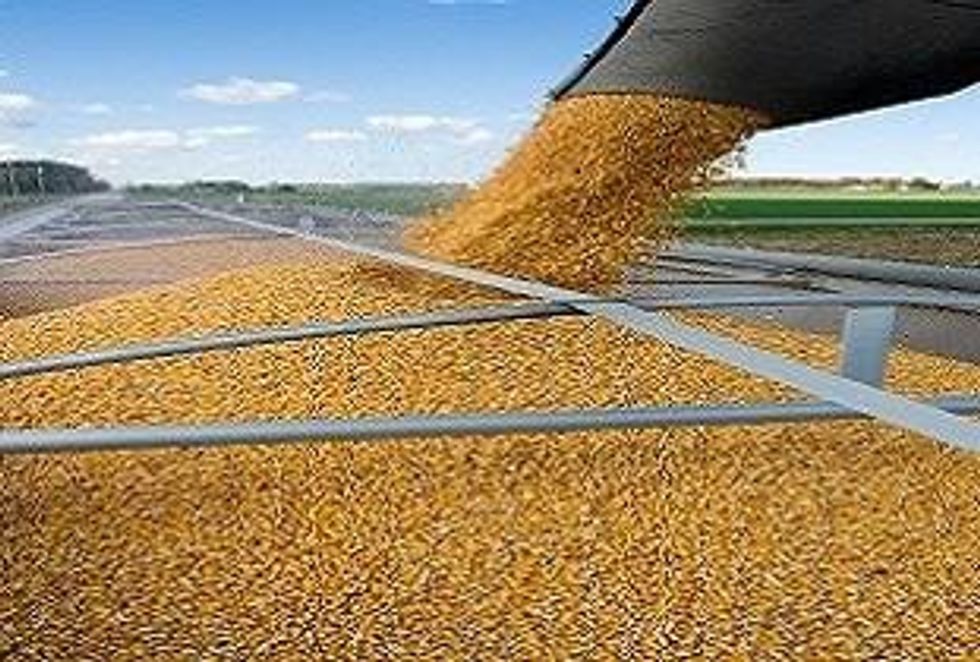- AustraliaNorth AmericaWorld
Investing News NetworkYour trusted source for investing success
- Lithium Outlook
- Oil and Gas Outlook
- Gold Outlook Report
- Uranium Outlook
- Rare Earths Outlook
- All Outlook Reports
- Top Generative AI Stocks
- Top EV Stocks
- Biggest AI Companies
- Biggest Blockchain Stocks
- Biggest Cryptocurrency-mining Stocks
- Biggest Cybersecurity Companies
- Biggest Robotics Companies
- Biggest Social Media Companies
- Biggest Technology ETFs
- Artificial Intellgience ETFs
- Robotics ETFs
- Canadian Cryptocurrency ETFs
- Artificial Intelligence Outlook
- EV Outlook
- Cleantech Outlook
- Crypto Outlook
- Tech Outlook
- All Market Outlook Reports
- Cannabis Weekly Round-Up
- Top Alzheimer's Treatment Stocks
- Top Biotech Stocks
- Top Plant-based Food Stocks
- Biggest Cannabis Stocks
- Biggest Pharma Stocks
- Longevity Stocks to Watch
- Psychedelics Stocks to Watch
- Top Cobalt Stocks
- Small Biotech ETFs to Watch
- Top Life Science ETFs
- Biggest Pharmaceutical ETFs
- Life Science Outlook
- Biotech Outlook
- Cannabis Outlook
- Pharma Outlook
- Psychedelics Outlook
- All Market Outlook Reports
While recapping their record-setting Q2 2011 earnings, Potash Corporation CEO Bill Doyle said that the potash industry is entering a period of “unprecedented opportunity.”
By Leia Toovey- Exclusive to Potash Investing News
Potash Corporation of Saskatchewan (NYSE:POT) released their second-quarter earnings on Thursday, which surpassed analysts’ expectations and set an all-time record for earnings per quarter. Second-quarter net income rose to $840 million, compared to the $480 million earned in the same time period of 2010. Second-quarter earnings per share were $0.96, topping analysts’ expectations of $0.85, and topping second-quarter 2010 earnings by 81 percent. Total revenue for the quarter was $2.33 billion compared to the projected $1.98 billion. Two-thirds of the company’s earnings came from potash sales, according to Potash Corp CEO Bill Doyle.In Thursdays’ earnings conference call, Doyle opened the conversation by saying, “The quarter reflected the strengthening fertilizer market and elevated us to the strongest quarter in our company’s history.” Doyle also added that in the second quarter, fertilizer marketing arm Canpotex had its second- best month in history, even though the company was unable to come to a supply agreement with one of its top customers— India.
Potash Corp was able to post the record high earnings due to skyrocketing potash prices supported by insatiable demand. “The continuation of strong fertilizer demand combined with the limitations of global production, especially in potash, resulted in tight fertilizer markets and rising prices for our products,” said Doyle. The company’s potash production hit a record of 2.6 million tonnes in the second quarter.
Doyle sees the potash market’s positive trajectory continuing for the foreseeable future. Doyle said that Potash Corp is entering a period of “unprecedented opportunity.” The potash market is being buoyed by record-high grains prices and dangerously low stockpiles. With potash supplies so tight, and the demand so high, Doyle added that there is a fundamental shift occurring in the potash market, with purchasers more willing to come to the table and settle long-term contracts to meet their pressing need.
As a sign of things to come, there are reports that Canpotex’s potash supplies are fully committed for the third-quarter. Doyle claims that Potash Corp’s domestic supplies are also sold out for the third quarter. On the back of a stellar second-quarter, Potash Corp also upgraded their third-quarter projections. The company now expects third-quarter earnings in the range of $0.80 to $1.00 a share. According to Reuters, analysts had forecast an average third-quarter EPS of $0.86. Potash Corp also hiked its full-year earnings forecast to $3.40 to $3.80 a share, up from its previous projections of $3.00 to $3.40.
Potash Corp is already implementing expansion plans to meet the future demand. “Meeting the worlds growing demand will be one of the biggest challenges in our industry in the years ahead,” said Doyle. Doyle forecasts an “era of tight supply/demand fundamentals” for the potash market, and expects potash production capabilities will be maxed out in the next few years.
Doyle is definitely not alone in his bullish stance on the fertilizer industry. Last week, Bloomberg quoted Mosaic Company (NYSE:MOS) CEOJim Prokopanko as saying Canpotex’s “cupboard is bare.” The latest industry data indicate that at the end of June, North American potash inventory levels at the producer level were 26 percent below the average of the last five years.
In Scotiabank’s Commodity Price Index, released this past Wednesday, economics VP and commodity market specialist Patricia Mohr voiced her bullish stance on the potash industry. Potash prices at the Port of Vancouver climbed to $490 per tonne in July, and another $30-$40 per tonne increase is likely before autumn in the Northern Hemisphere, according to the price index. “With strong demand in most of Asia and Latin America, producers may aim for a spot potash price (granular grade) approaching $600 cost and freight by late 2011,”added Mohr. The Commodity Price Index showed that spot potash prices for standard grade (FOB) rose from US$445 per tonne in May to US$481 in June and US$490 in July. The likelihood of a successful third price increase is supported by the fact that inventories are already “razor thin” and the fact that both BPC and Canpotex have successively raised prices in Brazil and Southeast Asia twice this year.
Disclosure: I, Leia Toovey, have equity interests in Potash Corporation of Saskatchewan.
Outlook Reports
Featured Agriculture Investing Stocks
Browse Companies
MARKETS
COMMODITIES
| Commodities | |||
|---|---|---|---|
| Gold | 2390.86 | +0.85 | |
| Silver | 28.67 | +0.01 | |
| Copper | 4.52 | +0.05 | |
| Oil | 83.24 | +0.51 | |
| Heating Oil | 2.55 | +0.01 | |
| Natural Gas | 1.76 | 0.00 | |
Investing News Network websites or approved third-party tools use cookies. Please refer to the cookie policy for collected data, privacy and GDPR compliance. By continuing to browse the site, you agree to our use of cookies.
